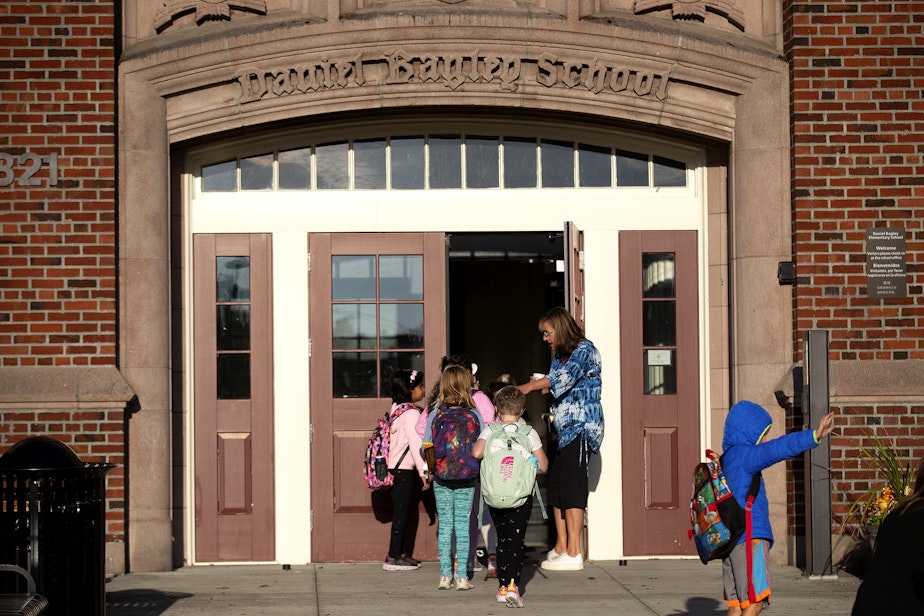What the election means for school funding in Washington state

As school districts across the state slash millions from their budgets and consider school closures, Washington voters signaled strong support for education funding in this week's election.
But it might not mean a windfall for schools — at least not right away.
Voters resoundingly defeated an effort to repeal the capital gains tax on the state's wealthiest residents. It's funneled hundreds of millions of dollars into education, from pre-K to college, and funds two state programs that help low- and moderate-income families find child care.
RELATED: Education advocates hope capital gains ruling helps WA schools
They also weighed in on candidates who will help guide education spending for years to come.
Attorney General Bob Ferguson sailed to victory in the governor’s race. During his campaign, he pledged to dedicate a greater share of the state's budget to schools.
Sponsored
At a debate in September, Ferguson pointed out that the percentage of the state's operating budget going to K-12 education has decreased in recent years, to about 44%. Ferguson said he wants to bring it back up to half.
"As governor, I'll change that," Ferguson said at the debate. "As the son of a schoolteacher, I know how important that is, and that gets down to prioritization. Our budget reflects our values when it comes to education."
Ferguson has also said he wants to send more money to districts that serve a larger share of low-income students.
Incumbent state Superintendent Chris Reykdal has declared victory in his race for a third term. Earlier this fall, he said he plans to ask lawmakers to inject nearly $3 billion more into public schools.
"I think it's time for all of us — in a bipartisan way, across the state, and every community — to recommit to schools in our state," Reykdal said.
Sponsored
RELATED: WA's top education official requests additional $3 billion for public schools
Arik Korman, the CEO of the nonpartisan League of Education Voters, said those proposals are great, and would be a huge help to financially strapped schools.
A report from the League this summer found that state funding isn't keeping pace with surging costs for staffing and operation.
"The need is great," he said. "We see a lot of districts around Washington state facing budget shortfalls and having to make very difficult decisions about what kind of programming they'll be able to keep up."
But Korman isn't sure a significant increase in state funding is feasible right now.
Sponsored
"We don't have $3 billion that we can just drop into education right now as a state," Korman said. "I mean, it would be great if we could find it somewhere, if maybe we get a revenue forecast that is a lot more optimistic than what we've been seeing up to this point. But until we see that there's additional revenue, I just don't see any kind of investment of that magnitude yet."
Korman is cautiously optimistic about a small boost next session — maybe a percent or less — but he has higher hopes for 2026 or 2027.
"If we see even that, I think that would be a win," Korman said.




